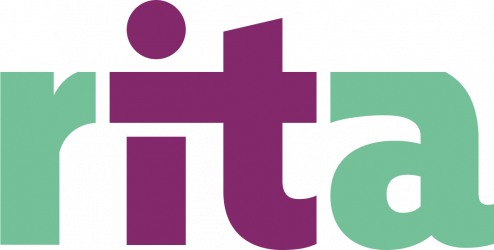G.O.S.H. / Royal Free Hospital – Adult unit
RITA brings together the leading European centers with expertise in diagnosis and treatment of rare immunological disorders. GOSH is a key member of RITA, and is involved in all 3 RITA subthemes for children.
Each of these 3 subthemes complement each other. The rationale for this, and the subsequent challenges posed can be summarised using a specific example:
Polyarteritis nodosa (PAN) is a rare medium vessel vasculitis previously considered a complex disease was likely autoimmune aetiology. Recently, it has been discovered that some patients develop PAN due to recessive or compound heterozygous mutations in CECR1, the gene encoding adenosine deaminase type 2. This mutation causes dysregulation of monocyte biology and excessive proinflammatory cytokine production including excess TNF alpha. It is becoming increasingly apparent that targeting TNF alpha is therapeutically beneficial, but does not address other aspects of the disease including the associated immunodeficiency. Since Gene therapy has been successful for immunodeficiency associated with deficiency of adenosine deaminase type I, we now have the prospect of applying this approach to deficiency of adenosine deaminase type 2 (DADA2). The RITA network will allow us to link with other key centres with expertise in all these issues, ultimately to improve diagnosis and treatment of this rare immunological disease spanning immunodeficiency, autoinflammation, and autoimmunity. From this specific example some common themes can be summarised into a set of challenges and opportunities:
-
- Each individual disease is caused by genetic and/or functional defects of immune cells and thus requires immunological expertise to understand pathomechanisms and therapeutic strategies.
- From a diagnostic point of view, genome-wide analysis platforms and functional immune assays are developing rapidly and are shared among all subthemes. These complex investigations cannot be available in all centres and a network approach is vital to ensure uniform patient access and reliable accredited results.
- Immunological therapies are being discovered and implemented rapidly; polyvalent immunoglobulin therapy has revolutionised the outlook for antibody deficient patients, and specific recombinant antibodies anti-cytokine (e.g. anti TNF, anti-IL-1), stem cell and gene-based therapies have transformed the lives of patients with rare autoimmune and autoinflammatory conditions. Originally developed in the field of PID, these are now being applied across the field of all the diseases covered by the proposed network and for the first time enable patients to be completely cured.
- We have large scale international registries in operation for immunodeficiencies (ESID registry), pediatric rheumatic disorders (Pharmachild) and autoinflammatory disorders (Eurofever), examining outcomes. We have extensive experience in diagnosis and management of PIDs and run a molecular and genetic national diagnostic service
Contact information
Prof. Paul Brogan
Professor of Vasculitis and Honorary Consultant Paediatric Rheumatologist, Section Head: Infection, Immunology, and Rheumatology
Send a message
Prof. Helen Lachmann
Amyloidosis and the Autoinflammatory Diseases
Send a message
Dr. Siobhan Burns
Primary Immunodeficiency Disorders
Send a message
